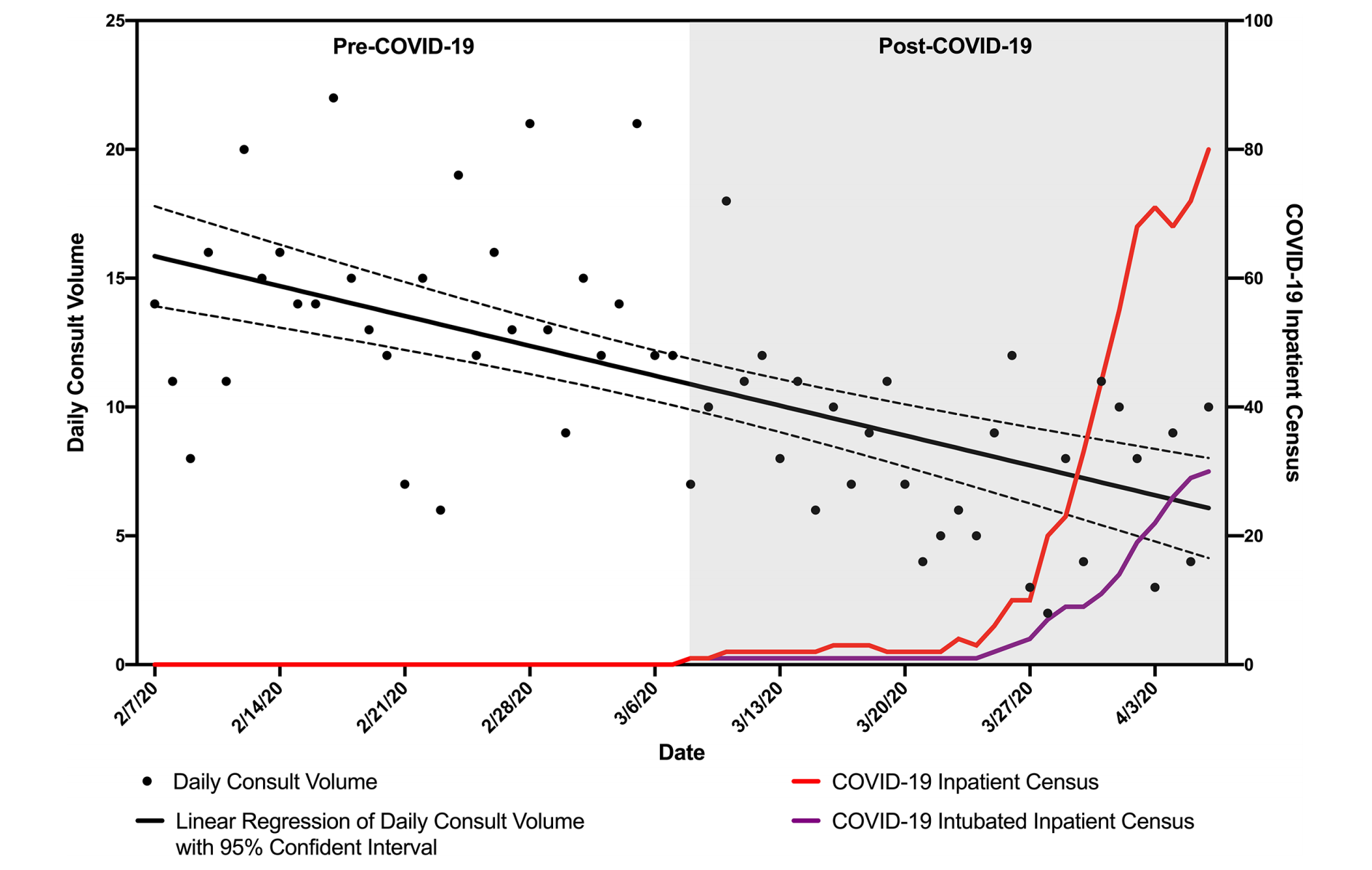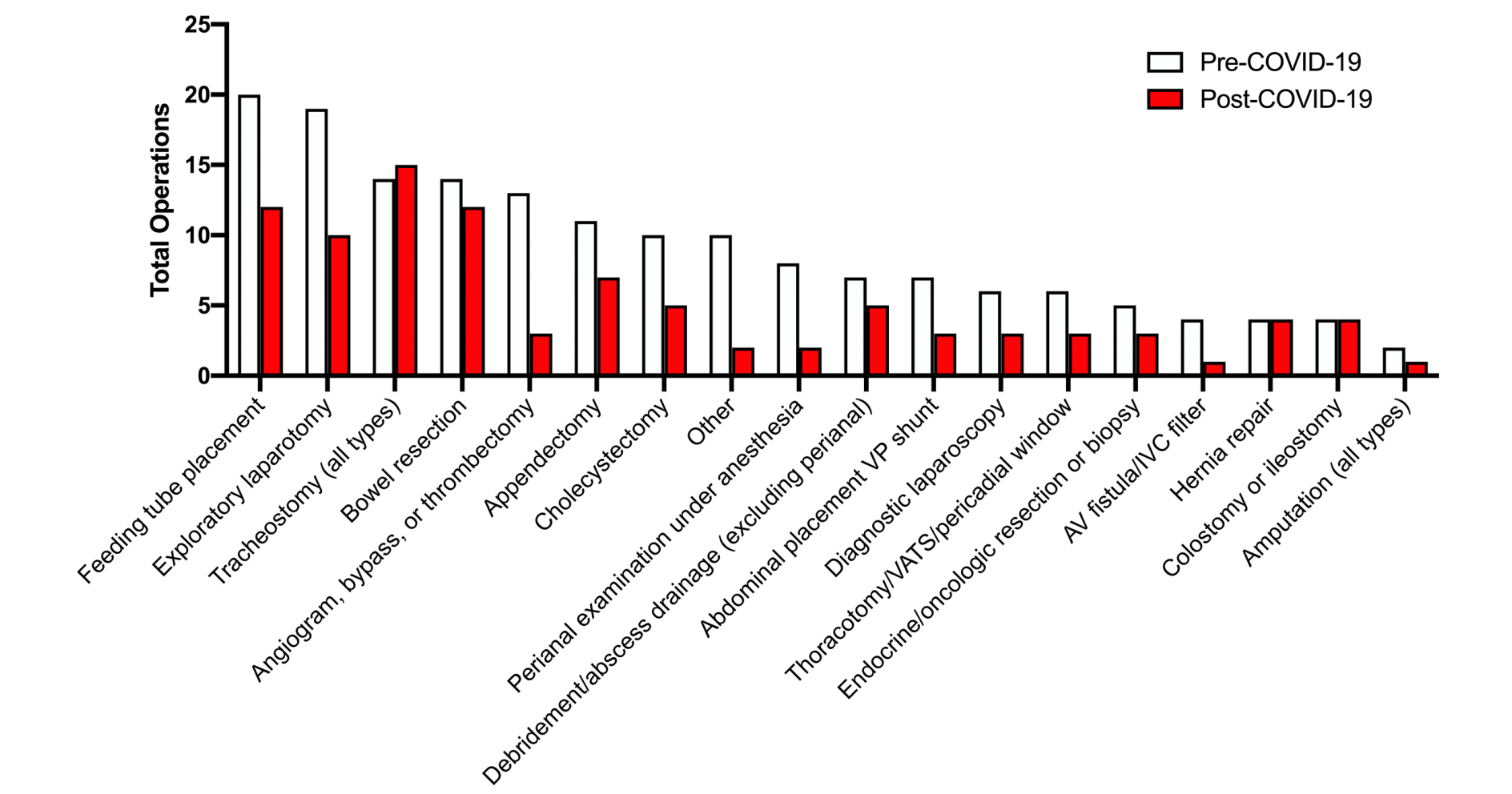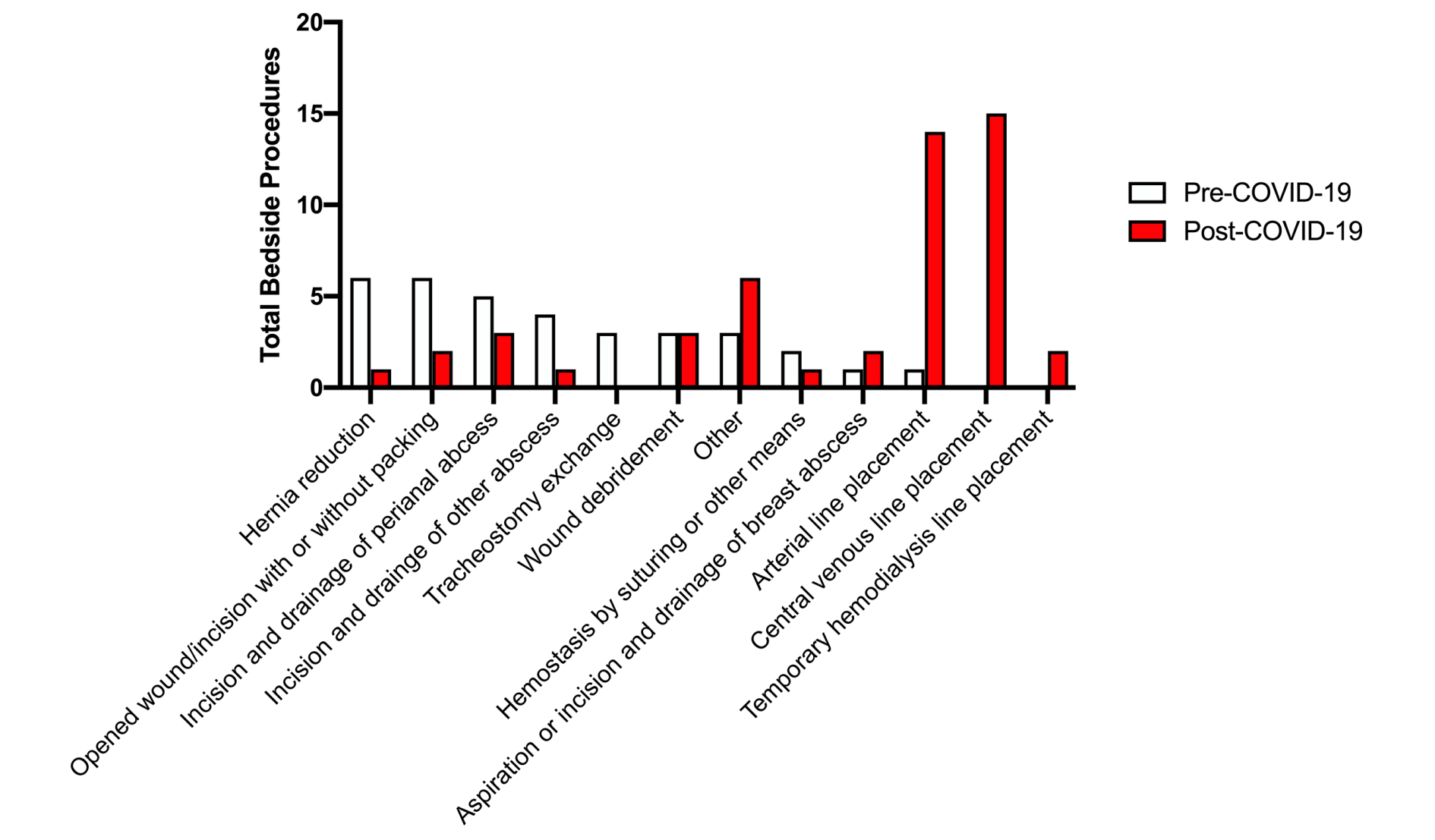Blog Post
Decreases in Acute Care Surgery in Response to COVID-19
A Tale of Three Charts
When the pandemic hit the United States, surgical centers across the country reduced the number of elective and nonemergent procedures they performed. In a recent study in The American Surgeon, John Riley, Daniel Holena, and colleagues document the extent of the decrease in surgical consults and operations performed in the University of Pennsylvania Health System (UPHS) in the 30 days before and after COVID-19 hit in March 2020. Overall, surgical consults decreased by 43%, with a significant reduction in the median daily consult volume from 14 to 8 (Figure 1).

The trends were not consistent across different types of surgeries. Laparotomies, cholecystectomies, lower extremity angiograms or bypass procedures, perianal examinations under anesthesia, and enteral access procedures were performed less frequently in the post-COVID-19 period, while the number of hernia repairs, bowel resections, ileostomies/colostomies, and tracheostomies remained fairly constant (Figure 2).

Most bedside procedures also decreased during the post-COVID-19 period, though the nature of COVID-19 created a markedly greater demand for some bedside procedures like arterial, central, and temporary hemodialysis line placements (Figure 3).

The decline in acute surgeries likely stems from patients’ anxiety about entering a large academic medical center during a pandemic and UPHS’ restriction of medical and surgical activity to inpatient or urgent cases. Regardless of the cause, this decrease in surgical consults and surgeries allowed the health system to reorganize and mobilize personnel to meet new areas of demand, including surgical line teams for critically ill COVID-19 patients. As health systems anticipate ongoing waves of the pandemic, these trends may be helpful to other Departments of Surgery in planning how to handle peak COVID-19 numbers.
The article, COVID-19 Pandemic Significantly Decreases Acute Surgical Complaints, was published online in The American Surgeon on August 29, 2020. Authors include John S. Riley, Valerie L. Luks, Luis Filipe de Pina, Ziad Al Adas, Jordan B. Stoecker, Benjamin M. Jackson, Benjamin M. Braslow, and Daniel N. Holena.